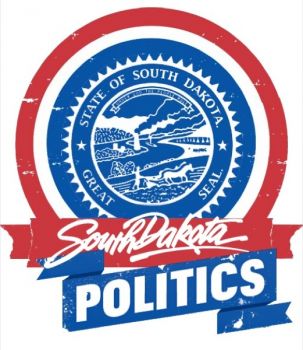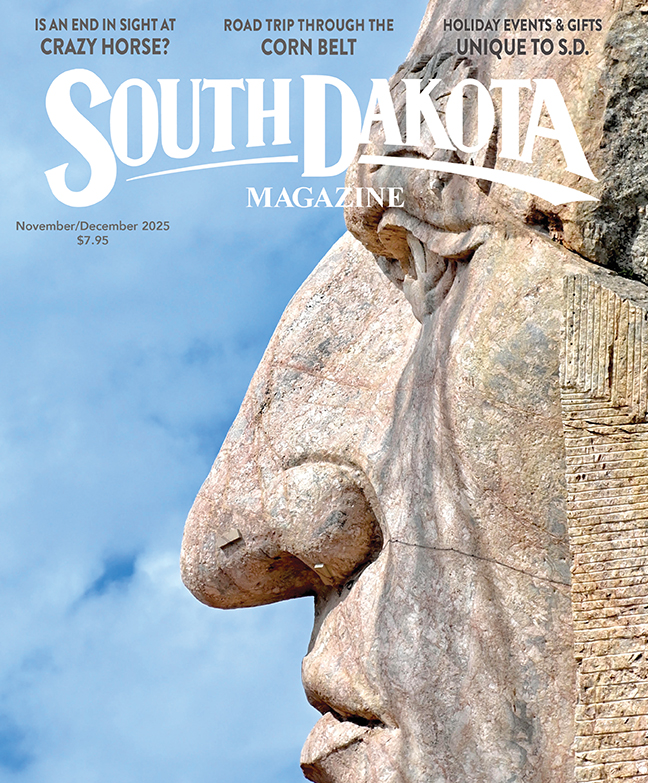The Gift of South Dakota
Subscriptions to South Dakota Magazine make great gifts!
Subscribe today — 1 year (6 issues) is just $29!
Jonesing For Indies
Jul 9, 2014
The non-race for attorney general shows why South Dakota should reform its nomination process to make it easier for Independents to run for office.
At its convention in Rapid City on June 21, the South Dakota Republican Party nominated Attorney General Marty Jackley to run for a second term. The following weekend, much to my chagrin, the South Dakota Democratic Party failed to nominate a challenger, leaving Jackley unopposed.
Jackley may yet face a challenger on the ballot: Republican Chad Haber, husband of former U.S. Senate candidate Annette Bosworth, announced Tuesday, July 8, that he wants to buck his party and run for attorney general. Among Haber's many problems is the near impossibility of getting on the ballot. Three party conventions are done. The Libertarians only have until Friday to schedule a date to legally nominate anyone. And Independents had to file by April 29.
The last thing I want is Chad Haber as attorney general. But I do want Independents to have fairer access to the ballot. Consider the disadvantages that state law, written by Republicans and Democrats, unfairly imposes on non-party people:
- This year, Independents running for House, Senate, or Governor had to collect 3,171 signatures. Republicans running for those offices only needed 1,955 signatures; Democrats, 1,221.
- Party candidates for attorney general, secretary of state, and other second-tier statewide offices don't need any signatures; they just need to show up at their convention, give out buffalo wings and ice cream, and win the convention vote. With no party to convene and nominate them, Independents aspiring to become attorney general or secretary of state must gather the same 3,171 signatures as Senate candidates.
- Independents get a slight advantage in races for Senate, House, Governor and Legislature: an extra month to gather signatures. But Indies for attorney general, secretary of state, public utilities commissioner, etc., have no such luck. Parties nominate their choices for those offices at the summer conventions, two or three months after the Indy filing deadline. This year, a prudent Indy who wanted to challenge Jackley but didn't want to stand in the way of a qualified Democratic candidate couldn't wait for the Democratic convention to see if anyone good entered the race.
We can fix these disadvantages with a few statutory changes:
- Establish a uniform filing deadline for all Independent candidates for statewide and legislative offices: the last Tuesday in July.
- Require political parties to submit their convention nominees by the last Tuesday in June.
- Reduce the Independent nominating signature requirement to the either the lower or the average of the major party signature requirements.
- For offices like attorney general, for which partisan candidates are nominated by convention rather than petition, set the Independent nominating signature requirement equal to the number of voting delegates attending the largest party convention in the state.
Independents accept the disadvantage of running for office without an ongoing party apparatus. They should not face additional unfair disadvantages imposed on them by partisan lawmakers. We can't fix the system in time to give Jackley the challenge he deserves, but we can open up the ballot and allow Independents easier access in future elections.
Editor's Note: Cory Heidelberger is our political columnist from the left. For a conservative perspective on politics, please look for columns by Dr. Ken Blanchard on this site.
Cory Allen Heidelberger writes the Madville Times political blog. He grew up on the shores of Lake Herman. He studied math and history at SDSU and information systems at DSU, and has taught math, English, speech, and French at high schools East and West River.











Comments
I concur wholeheartedly Cory, that there should be equal access for anyone who chooses to run for office. In reality however, the R's and D's set the requirements so why would they shackle themselves with more competition.......or at least competition that may take votes from the R's or D's.
I still favor a unicameral. Can you just imagine the confusion and bewilderment of voters when their ballots were missing any mention of R's or D's?
However, rules are rules...............any candidates who seriously want their names on the ballot (and go through the effort to do so) can accomplish this.
My take is that no one wants to expend the expense and energy knowing they will most likely lose to an R or D.
They have the same access as all other residents of SD.
The purpose of a primary election is for a party (any party) to select its nominee. Those who are not part of the party should have absolutely no say or input as to that nominee.
Indies can form their own group and nominate their own nominee as they see fit--heck, they could even hold a caucus and exclude non-indies (as Iowa does).
"We can't fix the system in time to give Jackley the challenge he deserves"
Sounds like another one of those angry statements buried in some personal vendetta that the "author" has against Mr. Jackley.
When will South Dakota Magazine fix its selection of columnists to give "Cory Heidelberger" the challenge he deserves?
Independents by definition do not join a group to organize campaigns and nominate candidates. Suggesting that Independents form their own party is ridiculous. Why should there not be a place in political activity for individuals who prefer not to yoke themselves to an organization or a platform?
Suggesting that Independents have the same access to the ballot is also ridiculous and ignores the plain facts stated in the article. Independents have to gather more signatures than anyone else to become candidates. That's unequal access.
I wonder, would it be any fairer to tie signature requirements to party registration numbers instead of voter turnout numbers? Suppose we set the quota at 1% of current registration. Statewide GOP candidates would need to get 2,376 signatures, Dems 1,751, and Indies 973. Would that be a better system?
(Voter registration totals are available at the Secretary of State's website: https://sdsos.gov/elections-voting/upcoming-elections/voter-registration-totals/voter-registration-comparison-table.aspx)
Why should the state favor partisan candidates over independents?"
Because candidates with parties behind them are more likely to generate interest and generate voters at the polls.
And good for independents choosing to remain above the fray--that's a choice, not some state-sponsored discrimination.
"ridiculous"? Typical nonsense.
There is a place for indies now! They can speechify all they want about their favorite candidate, urge others to vote for her , spend money on that candidate, and vote for whom they wish.
"That's unequal access"
That's an illogical conclusion based on your premises. For an individual to make a choice about their lack of party affiliation is just that--a INDIVIDUAL's choice. One cannot expect to make a choice and then expect everyone else to accommodate that choice.
Here's an analogy: SD allows some to possess a concealed weapon if their obtain a $10 permit. Some choose not to obtain that permit even if they have a weapon and $10. So, it's unfair for SD to fine those caught carrying a weapon without a permit? Of course not!
The State of SD has a rational reason for restricting general election ballot access: to prevent a lengthy or confusing ballot.
Change it if you like. But claims about unfairness of the current system are unfounded.
So, why does Jackley deserve a challenger?
Certainly individuals choose to affiliate with a party or remain independent. Individuals choosing Independence already assume a number of practical disadvantages. What interest does the state have in adding a statutory disadvantage? The idea that the state has a compelling interest in shorter ballots is silly; if that were an absolute interest, then it would dictate a desire for the logical conclusion that we should have the shortest and simplest ballots possible, Iranian or Syrian style ballots with just one candidate. Obviously we want some length and complexity to our ballots to offer genuine choice.
So how long should the ideal ballot be? The current system is rigged so that it is easier to get a simple binary ballot where the two choices are the two major-party nominees. Why do we make it harder for a third candidate, an Independent, to get on the ballot? Because the two parties want it that way, because they don't want more competition.
Besides, if equalizing the signature requirements for partisan and non-partisan candidates led to a flood of Indy candidates and we ended up with five (ten? 50? How many candidates is too many?) people in a race, we have a solution: the run-off election. A run-off seems a fairer way of simplifying the final ballot than a statutory scheme rigged by the parties for the parties.
Independent candidates have less access to the ballot. That unequal access is unfair. It is dictated by no compelling rational state interest that overrides the rights of citizens to participate equally in democracy.